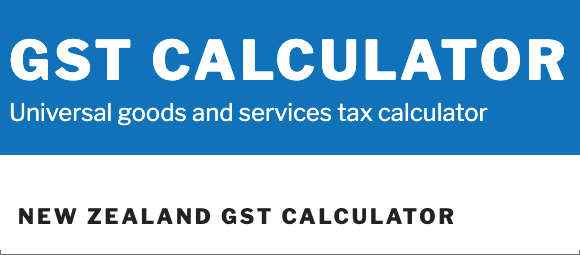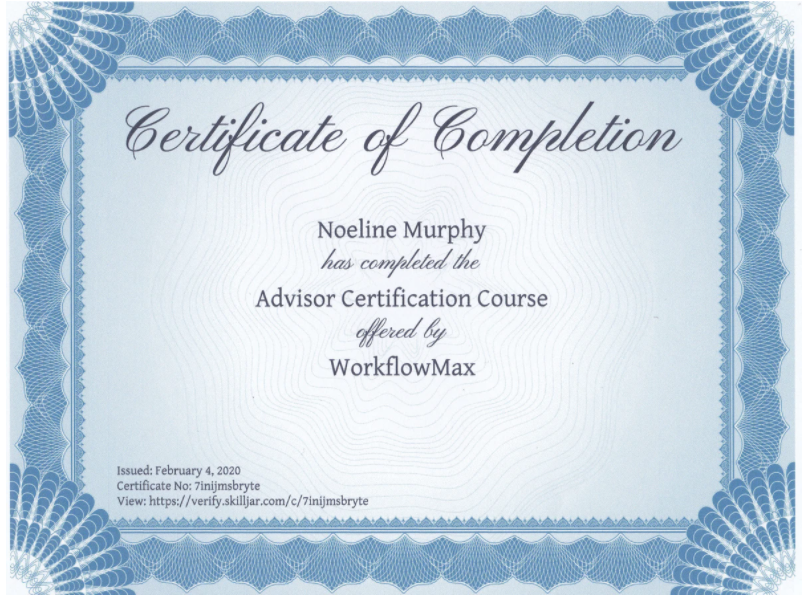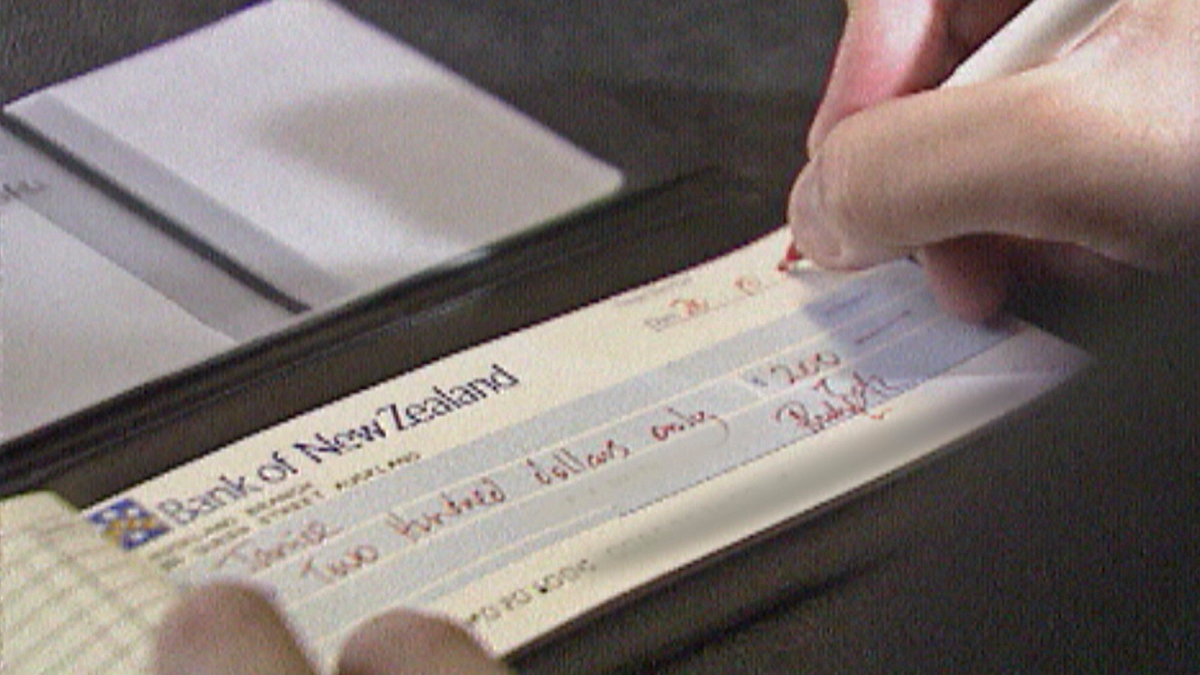NZ GST Calculater


This link to a NZ GST calculator will save you time and hassles.
New Zealand GST Calculator – gstcalculator.net

I really liked this paragraph I found online about the difference between Bookkeepers and Accountants.
“Bookkeeping and accounting often get used interchangeable, however there are a few differences between the two. Both accountants and bookkeepers are essential to the successful operation of a business, and both are great assets to the financial side of things. However some people will refer to an accountant as a ‘giant sifter’, with bookkeepers being the process of pouring stuff into the sifter. You can’t be an accountant without being a great bookkeeper.”

For anyone who is thinking of starting up their own Business here is my story:
After many years of working as a Bookkeeper for 2 Companies and living a very settled existence, back in October 2019 I was told by one of my bosses that he may have to reduce my hours. Wake up time!
I am 59 years old and was looking down the barrel of retirement next decade. What to do? Well this is what I did. I started job hunting and discovered Bookkeeping was recognised as a profession in New Zealand. There were courses I could take to fill in the gaps of my knowledge and organisations to help and support me along the way. It was light bulb moment for me. Right there and then I decided why not be Self Employed? Ok the next step was to educate myself. I joined the ICNZB and found out about some Bookkeeping courses. I studied with The Career Academy. I really enjoyed the practical and theory balance of the courses. I completed my Certificate in Bookkeeping in just over 2 weeks and followed that with my Diploma in Xero.
My confidence was beginning to grow, and I noticed how it was helping me in my current jobs. I still had doubtful times when I would wonder if I was too old for this. I think the Universe was listening because while browsing I found this saying “learn like you are going to live forever”. That was all I needed to motivate me to carry on.
Next was branding. I have a lovely niece who has a degree in Marketing, so she helped me find my logo and told me to get on Facebook and Linkedin. I designed my website to cut costs and feel quite happy with the result. I also joined an organisation call BNI (Business Network International) who help Businesses through referrals. It has been a good decision to join them. They have helped me so much.
I am continuing to grow and learn. Recently I have managed to get my Xero Advisor Certificate and I am now a qualified member of the NZQBA and a member of the AAT. I also attend webinars to further my knowledge.
I am really excited about the future and really want to help small businesses be successful. Recently got my first client!!
I am going to give 110% because I love what I do. Give it a go, you have everything to gain!

Chasing overdue Clients for payment can be one of the most arduous tasks in a Business.
Here are some of the procedures I put in place each week for one of my clients, whose Business consists of 6 people, that I work one day a week for:
Weekly:
A print out of each Sales Representatives overdue customers sent to them, advising who is on Stop Credit and who needs to be watched. Its important that the Sales Team works with the Accounts Department so they are not selling goods to bad risk customers.
For each customer contacted , I type in their contact logs (we use MYOB) what has transpired so that the rest of the staff can see which customer has been contacted.
Week One:
After the Statements are sent, I send a friendly reminder plus invoice copies of the overdues.
Week Two – Four:
I mark off each customer that has paid in the contact log. I then ring the overdues that are left and advise the Sales Representatives on their weekly overdue Debtors list.
20th of each month:
When overdues are 60 days they are put on credit hold and I record this in their contact logs. I also advise the Sales Representatives.
I find this system works really well and we have increased my clients cash-flow a lot by this method.
The secret is to consistent and ring when you say you are going to ring. If your Business has staff, its crucial to work together and all be on the same page. If you are a Sole Trader set aside one morning per week or you can employ a Bookkeeper to help.
Whether you do Credit Management yourself or hire a Bookkeeper, this is a very crucial step in helping increase your Cash-flow.
#FB

There are over 500 apps that connect to Xero. It can be quite daunting knowing which app to choose to help streamline your business and free up more of your valuable time to follow your dreams.
As a Xero Certified Advisor, I am currently updating my knowledge on the best apps my clients can use. I can help connect you to the right app and connecting to Xero’s help & support. I have recently passed my WorkflowMax Certification Course and plan to continue on to learn others including Hubdoc.

For example WorkflowMax is a Project Management app that helps in industries like Creative Industries , Tradies & Builders, Business Consultants, Engineers, and IT Services. WorkflowMax Runs your projects from beginning to end with project management software. Do it all – quoting, scheduling, time tracking, invoicing and reporting – and get a much better picture of your people and your profit. It can also be used on your Mobile phone – great for working on the job.
It has a good training course and plenty of help and support to get you started.
Xero have Cloud Integrators:
https://www.xero.com/nz/partner-programs/cloud-integrators/directory/ that can help you decide which app is the best for your business and implement integrating the app with ongoing support.
Most apps have a 14 day free trial so you can have a play to see if its what you want for your business. You can have a play on your Demo Company which is attached to your Xero account so you wont have to touch your own business accounts in any way.
My commitment to you, as my client, is that I will learn as much as I can about any app that you decide to use so together we can utilise its full potential in your business.
#fb

From 1 March 2020 IRD will no longer be accepting cheques as payment.
Go here for more information and alternative ways to pay: https://www.classic.ird.govt.nz/campaigns/2019/cheques/cheques.html

I would like to share a video on Debt Collection and how to approach your customer in these difficult times. Its not always easy to ask your customer for money. There is also a service the Government is rolling out on Debt Hibernation which maybe helpful to some Business struggling at this time.
Contacting Overdue Customers is one of the services I perform for some of my clients but for those who want to tackle it themselves, this video might be helpful.

Open a Business Bank Account as soon as you decide to go with your start up and get a separate Business Card. This not only separates your accounts but also helps your business build its own credit rating. It also will reduce your Accountants/Bookkeepers time processing your accounts and save on fees.
Manually entering data into spreadsheets is extremely time consuming and expensive. Use cloud-based accounting software like Xero and MYOB so you can connect your Business Bank Accounts with Bookkeeping Software. This ensures you have accurate and up to date records. Cloud-based Accounting is also backed up safely off site.
Set aside some time each week to go over your accounts. Xero makes it really easy to reconcile your bank accounts. You can check who has not paid and get in touch with them quickly. A great way to keep on top of things.
Each Quarter take a look at sales growth, overdue customers. Has there been an increase in spending? Is there a way to reduce Utilities? Your Bookkeeper/Accountant can help you see the big picture, so you are better prepared for future capital needs.
Keep all your expense records for reimbursing and Creditors. Xero has a great function where you can take a photo of your receipts or transfer a pdf file of your bill to their software. That is a permanent electronic record on file. This is handy for those tape receipts that fade over time.
If you have Employees, it is vital that you have a way to keep accurate and up to date records on their pay. There are many payroll systems available and are easy to learn. Xero Payroll is attached to Xero Software so the totals of each pay run automatically get transferred across for you. It also utilises time entry automatically for you.
It is really important to get in contact with overdue customers as soon as you can. When customers do not pay on time, it can create cash flow problems. If a customer is having financial problems, you can set up a payment plan. Check with your Bookkeeper/Accountant on Credit Management options. Some offer a Credit control service, so you do not have to deal with the customer personally.
A good way to ensure you have enough money to pay your taxes like GST and Income Tax, is to have a Business Tax Savings Account where you can put aside some money on a regular basis. The IRD can send reminders to help you remember when your payments are due.
There is a lot of help out there whether you are starting up a new Business or want help in growing your Business. Your Accountant/Bookkeeper can give you the right advice and point you in the right direction.
If you decide you do not want to process your accounts yourself, a Bookkeeper is a really good option. Contracting a Bookkeeper is an investment to help grow your Business. The time you save not having to do your own accounts can be invested in your own advertising and even having a well-earned break especially over the Christmas Holidays.
Information Source: https://www.score.org/blog/10-tips-better-small-business-bookkeeping

I can process and file your GST (2 monthly) for you at a very reasonable fee of $125.00 + GST. (That is approximately 2 hours work.) Any extra work required will be at $60 per hour + GST.
I can give you peace of mind that your GST is correct and on time and I can even check to make sure you are claiming enough each month. You have also gained at least 2 hours of free time to do what you want to do.
Give me a call for a no obligation discussion for what I can do to help you.

I wanted to share a blog from Prospa which I believe has a clear explanation on the confusing issue of Vehicle claims:
If you only use your vehicle for business purposes, then you can claim the full running costs as a business expense.
But if you use your vehicle for both business and personal reasons, then you’ll need to keep a logbook so that you can accurately calculate and justify to Inland Revenue (IRD) the work-related percentage.
The difficulty comes with keeping a logbook. It’s quite difficult for business owners to actually undertake that exercise as it’s time consuming.
You only need to keep a logbook for 90 days – and that will last for three years, providing the proportion of your vehicle’s business use doesn’t change by more than 20%.
Once your logbook (here’s an IRD template) is sorted, there are two different methods that sole traders or partnership businesses can choose to calculate expense deductions: the ‘Actual Costs’ method and the Kilometre Rate’ method (both discussed below).
If you own and run a small company with shareholder-employees, more complicated rules and decisions regarding fringe benefit tax (FBT) may apply and professional tax advice should be sought.
Keeping a logbook is not fun, but just remember, you’ll likely only need to do it once every three years.
The IRD says your logbook should record:
Once done, calculate the total distance travelled. Next, work out the kilometres that were driven for business. Finally, calculate the proportion/percentage driven for business compared to the total distance travelled.
It might be 40% business, 60% personal. Or even 80% business, 20% personal – it will depend on your circumstances.
After that’s sorted your next step is to choose a method.
METHOD ONE: The Actual Costs method
As the name suggests, this method requires you to keep track of the actual costs of running your vehicle.
That means keeping accurate records of all your vehicle-related expenses over the year, including petrol, oil, a warrant of fitness, repairs and maintenance (including tyres), insurance, registration, tolls and parking.
You can then also claim GST on the purchase price of the vehicle in relation to the business use.
You have two options to calculate the work-related portion under this method:
Option 1: By using a logbook – as explained above.
Option 2: By claiming up to 25% of all vehicle expenses. However, keep in mind you could still be asked by the IRD to justify the percentage claimed.
Then, simply apply the following calculation: Actual Costs x Work-related portion (Option 1 or Option 2) = Claimable Cost.
METHOD TWO: The Kilometre Rate method
Below are the rates per kilometre applied for the 2019/2020 income year
| Vehicle Type | Tier One Rate | Tier Two rate |
| Petrol or Diesel | 79 cents | 30 cents |
| Petrol Hybrid | 79 cents | 19 cents |
| Electric | 79 cents | 9 cents |
The Tier One rate is to provide for a combination of your vehicle’s fixed and running costs, and can be used for the first 14,000 kilometres travelled by the vehicle in a financial year (including for both business and personal purposes).
The Tier Two rate is to provide for running costs only. Use the Tier two rate for the business portion of any travel over 14,000 kilometres in a year.
It’s worth noting that when using this method you do not need to consider GST and that kilometre rates include depreciation, so make sure you don’t claim a separate depreciation deduction for the vehicle.
Calculation example: Let’s say your diesel vehicle travelled a total of 30,000km (both personal and business) over a financial year, and that your 90-day logbook showed a split of 60% work and 40% personal. You’d therefore calculate the following:
Tier one: 14,000km x 79 cents = $11,060
60% (work proportion) of $11,060 = $6,636
Tier two: 16,000km x 30 cents = $4,800
60% (work proportion) of $4,800 = $2,880
Total deduction amount = $6,636 (Tier One) + $2,880 (Tier Two) = $9,516.
Final tips on claiming car expenses
What method you decide to use will depend on your business’s circumstances.
While the Kilometre Rate method might seem like the more straightforward option as you don’t need to keep as many receipts, The Actual Cost method can better represent a vehicle’s depreciation – especially if you haven’t racked up many kilometres that year.
And if you haven’t kept an accurate logbook, but you’ve got a work diary that’s recorded accurate details of business meetings outside of your workplace.
If you are in a hurry, you can take a photo of your car speedometer at each end of your journey.
Source Information https://www.prospa.co.nz/blog/what-work-related-car-expenses-can-you-claim
